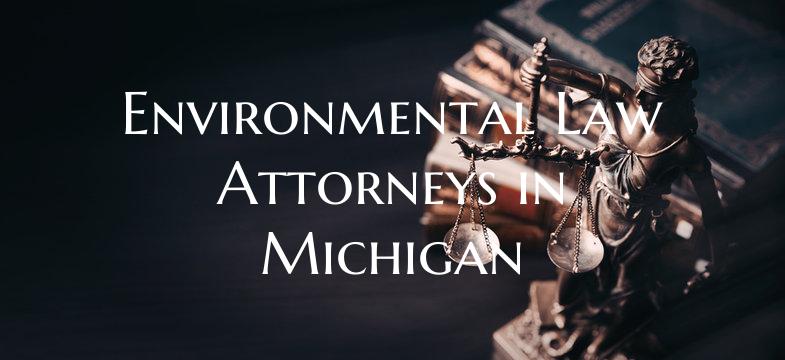
Environmental Law Attorneys in Michigan
Introduction: Michigan, with its spectacular landscapes and abundant natural resources, stands as a beacon of environmental diversity. However, the delicate balance between economic development and environmental preservation necessitates stringent laws and regulations to safeguard the state's ecological integrity. In this scenario, environmental law attorneys play a crucial role in upholding environmental protection standards and advocating for sustainable practices.
The Role of Environmental Law Attorneys in Michigan: Environmental law attorneys in Michigan are dedicated professionals equipped with the expertise to navigate the complex legal landscape surrounding environmental issues. They work tirelessly to ensure compliance with state and federal environmental regulations, safeguarding the air, water, and land resources that are vital to Michigan's residents and wildlife.
These attorneys assist individuals, businesses, and governmental agencies in understanding and adhering to environmental laws related to pollution control, waste management, land use planning, and conservation efforts. They help clients obtain necessary permits, negotiate environmental impact assessments, and represent them in litigation related to environmental disputes.
Moreover, environmental law attorneys play a significant role in advocating for environmental justice, ensuring that marginalized communities are not disproportionately affected by environmental hazards. They work towards holding polluters accountable and seek compensation for communities impacted by environmental degradation.
The Challenges and Opportunities in Environmental Law Practice: Navigating environmental law in Michigan poses several challenges, including staying updated on constantly evolving regulations, interpreting complex statutes, and addressing conflicts between economic development interests and environmental conservation goals. Environmental law attorneys must possess a comprehensive understanding of not only legal frameworks but also scientific principles to effectively advocate for environmental protection.
Despite the challenges, environmental law practice in Michigan offers significant opportunities for attorneys to make a positive impact on the environment and communities. By promoting sustainable practices, advocating for conservation efforts, and holding violators accountable, environmental law attorneys contribute to a healthier and more sustainable future for Michigan.
Conclusion: Environmental law attorneys in Michigan serve as guardians of the state's natural resources, working towards a harmonious coexistence between human activities and the environment. Their dedication to upholding environmental laws, advocating for environmental justice, and promoting sustainable practices is essential in preserving Michigan's ecological heritage for future generations. By supporting and collaborating with environmental law attorneys, individuals and entities can contribute to a greener and more sustainable future for Michigan.
